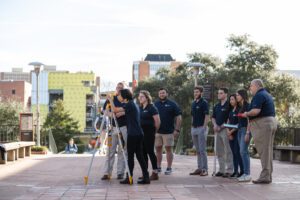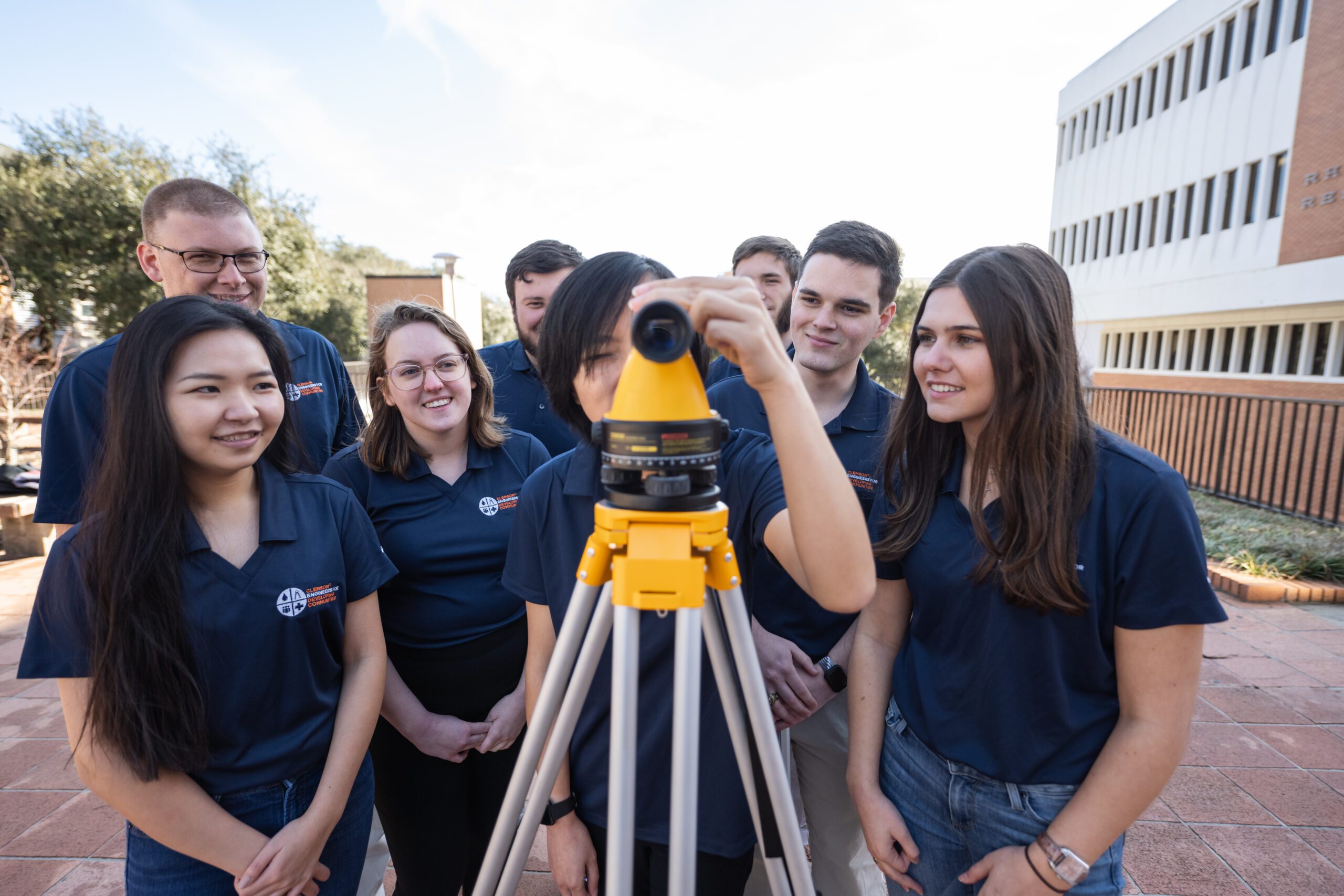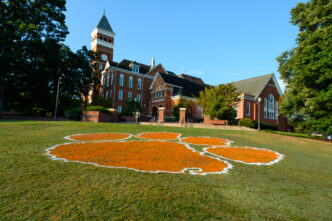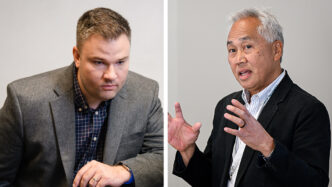Zachery Holland said that when stormy weather strikes the small, rural town where he grew up and the surrounding area, one of the first things that happens is the local electrical workers are called to help rebuild in bigger cities.
“We’ll lose power simply because a tree branch fell on the line,” Holland said. “We don’t have properly maintained rights of way because we don’t have the funding and staffing to maintain the county, as big as it is.”
Holland, now a civil engineering major at Clemson University, said the disparities he saw in South Georgia have made a new program at Clemson “near and dear to his heart.” Organizers said the program will give students hands-on, resume-building experience, while redefining how academia relates with all levels of government, the private sector and the communities they serve.
The U.S. Army Corps of Engineers (USACE) is providing about $2 million to launch the new initiative, the Dam Sector Regional Risk Resilience Program.
The program “will use Clemson to develop replicable processes to look at all-hazards vulnerabilities in the Savannah River watershed, their potential cascading effects and disruptions to critical infrastructure, and inform communities on identifying risk and methods to achieve the level of resilience they elect to attain,” according to the corps.
“Clemson will also develop the replicable processes that allow U.S. Army Corps of Engineers projects to determine watershed-wide vulnerabilities to its projects in the watershed,” the corps stated.
Holland and other students will soon begin working with county and municipal officials in communities along the Savannah River to help them assess their infrastructure and see what can be done to make it more resilient to flooding and other hazards. Their work will include flood-mapping, infrastructure analysis and dependency assessment.
They will be focusing mostly on low-capacity communities on the South Carolina side of the 300-mile river to start. Also as part of the program, Clemson is creating an Engagement Hub that will act as a “front door” to the University, helping match those same communities with University, state and federal resources.
“The Dam Sector Regional Risk Resilience Program will serve a critical need in our communities,” said Clemson University President Jim Clements. “As a premier land-grant university, Clemson’s mission – to meet the needs of our citizens both in South Carolina and beyond – requires engaging in key partnerships, research, and experiential learning. We look forward to working with our partners and communities along the Savannah River as we continue to elevate our State’s critical infrastructure.”

David Vaughn, director of Clemson Engineers for Developing Communities, is principal investigator on the contract.
Vaughn said the team will look at flooding to start because it is one of the major issues in South Carolina but that work could later expand to preparing for other potential disasters, such as hurricanes, earthquakes and cyberterrorism, depending on the needs students find once they begin.
Those involved in the new program will include undergraduates, graduate students and postdoctoral researchers. Organizers welcome participation from across the University, not just engineering.
“It really is more of a mindset,” Vaughn said. “We’re looking for those who are inquisitive, willing to learn, want to change the world and are willing to put in some hard work.”
With the program, Clemson and its partners are working to disrupt a troubling Catch-22. Some of South Carolina’s most vulnerable communities could benefit most from federal funding to help prepare for hazards, but they don’t have the financial resources or personnel to compete for major grants that could pay for planning and infrastructure improvements.
Jon Caime, a Clemson civil engineering alumnus who now oversees special projects in Anderson County, said even high-capacity communities could use the help. The county is experiencing rapid growth, particularly in Powdersville and Pendleton, and will be the first community to participate in the new program.
“We’re constantly playing catch up because we’ve got so much growth and so much activity taking place,” Caime said. “We can’t stop and say, ‘It would be nice to do some planning.’ That’s what we’re really talking about– planning and planning forward.”
The program builds on the previous success of Clemson Engineers for Developing Communities, which has been helping vulnerable communities since 2009. Students in the program installed the first chlorinated municipal water system in Haiti’s Central Plateau for which it won a 2014 Heiskell Award.
More recently, the group has been assessing infrastructure’s vulnerability to flooding in the Pee Dee, a region of South Carolina where some areas defied the odds and suffered 1,000-year flood events in both 2016 and 2018. Tori Malvoso, a computer engineering major who served as project manager on the Pee Dee project, said the work she will do along the Savannah River will be similar.
“Knowing that we are serving communities is what drives me to work hard and lead these projects,” Malvoso said. “After seeing how much the Pee Dee region is affected by flooding, I knew I wanted to work more in hazard mitigation to see how I could help benefit local communities. Since I’m not originally from South Carolina, being part of these projects has helped me understand and connect with South Carolina so much more and I look forward to continuing to do that.”
Frank Randon, a program director with the U.S. Army Corps of Engineers, said he looks forward to the collaboration with Clemson.
“The partnership we have established with Clemson University is aimed at identifying replicable processes that communities and USACE may easily use to achieve their desired level of resilience,” he said. “This includes helping communities to better understand planning for, and absorbing, recovering and adapting from disruptions, such as flooding. Working together, we are better positioned to build and maintain infrastructure, making for a stronger state and nation.”
Organizers aim to create a program that could be reproduced elsewhere. The corps is working with the University of Georgia to establish a similar program using Georgia graduate students for the its side of the watershed.
Bridget Trogden, associate dean for engagement and general education in Clemson’s Division of Undergraduate Studies, will focus on making the program’s educational model sustainable.
“The research shows the students need what we call agency, they need autonomy,” she said. “What we know now about student learning, interest and needs is that we should be asking how we can have ways of teaching them knowledge and skills while they are also making a contribution to the world.”
Pam Murray-Tuite, a professor of civil engineering, is overseeing the project’s research, which will cover community resilience, infrastructure resilience and infrastructure interdependence.
Researchers plan to look beyond the obvious. For example, while it’s clear a failing bridge could cause injuries, it could also cut off access to key facilities, such as hospitals and fire stations.
“I’m excited about the scale and tying infrastructure and hazards to real-world community impacts to see how we can reduce risks,” Murray-Tuite said. “We’ll be able to see how people can use the models we create to make change.”
Aubrey Baldwin, director of student engagement for the College of Engineering, Computing and Applied Sciences, said the program will create new opportunities for students.
“Students in the program will get real-world, hands-on experience working with local, state and federal officials, better preparing them to be the leaders and innovators of the future,” she said.
Anand Gramopadhye, dean of the college, said Clemson and its partners are well-positioned to build on Clemson Engineers for Developing Communities’ previous successes.
“This collaborative, multidisciplinary partnership brings together top talent, impactful research and experiential learning, all to prepare the next generation of leaders and innovators while benefiting the state as a whole,” he said. “I congratulate David and the team on landing this well-deserved grant. Their work underscores the enormous potential of the 21st-century land-grant university.”







